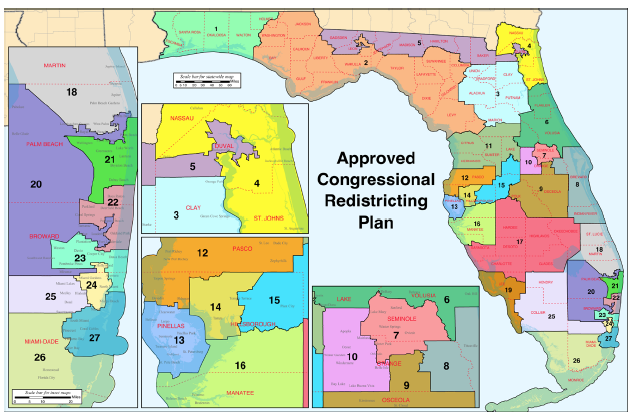In Jennifer Brinkmann v. Tyron Francois, etc., et al., the Florida Supreme Court affirmed the Fourth District Court of Appeal’s prior ruling declaring F.S. 99.0615 invalid. The statute provided:
F.S. 99.0615 Write-in candidate residency requirements.—At the time of qualification, all write-in candidates must reside within the district represented by the office sought.
The Court found the statute to be facially unconstitutional because it directly conflicted with the Florida Constitution’s requirement that requires residency in a particular district at the time of election, not at qualification. The Court went on to determine that write-in candidates are considered to be “opposition” under Flordia’s election laws, meaning the presence of a write-in candidate will continue to result in the closing of a primary election to only those who are members of that political party.
In an interesting paragraph, the Court turned to the dictionary to define the term “opposition”:
“According to dictionary definitions, “opposition” meant “a position confronting another or placing in contrast; that which is or furnishes an obstacle to some result.” Black’s Law Dictionary, 1093 (6th ed. 1990). It was also defined as an “act of opposing,” a “hostile or contrary action or condition,” and “something that opposes,” or “a political party opposing and prepared to replace the party in power.” Merriam-Webster’s Collegiate Dictionary 816 (10th ed. 1998). The act of “opposing” was “appli[cable] to any conflict” and synonymous with “set[ting] oneself against someone or something.” Id. Conversely, someone or something was “opposed” if he, she, or it was “set or placed in opposition.” Id. Additionally, an “opponent” was “one that takes an opposite position (as in a debate, contest, or conflict).” Id. at 815.”

